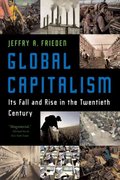Answered step by step
Verified Expert Solution
Question
1 Approved Answer
Please find the question on Game Theory in the image attached. 2. Game theory and incentive design Game theory can provide an insightful framework for
Please find the question on Game Theory in the image attached.

2. Game theory and incentive design Game theory can provide an insightful framework for analyzing and understanding the behavior of players with diverging objectives and can therefore be applied to the design of systems of incentives seeking to elicit desired patterns of behavior. Here, we use the setting of an investment bank to begin to explore some of these ideas. The investment banking department of Bank Debit Suisse (DS) has a number of employees, each of whom is assigned to work on one deal each year. Each deal is worth $ 500,000 to the bank, but only if it is completed during the year. Each employee has three strategies available: (h) working hard, (C) showing up to work but being lazy, and (q) quitting to work elsewhere. Each employee considers the poorer work life balance from working hard vs. being lazy to equate to an "opportunity cost" of $ 50,000, while the opportunity cost of coming to work at all (vs. quitting to work elsewhere) is $ 100,000 (i.e., if the employee does not have an expected total compensation of $100k or above, he or she will quit). Everyone knows and agrees that the probability of a completed deal is 60% if the employee works hard, but only 30% if the employee is lazy (and 0% if the employee quits). However, the only strategy available to the bank is to pay every employee a fixed salary of SS per year, i.e. the bank is assumed at this point in the problem to have no means of identifying or differentiating between employees by e.g., firing them, promoting them, or giving them pay increases. You may wish to think of S as a continuum of strategies available to the bank. (a) Write out the expected payoff matrix for Bank DS and the employee as a function of S, i.e. taking into account the probabilities of successful deals. Do not forget to include the employee's opportunity costs. What are the pure-strategy Nash equilibria in terms of S and {h, C, q}? Assuming that DS wishes to maximize its profit, what is the bank's optimal (pure) S, what is its expected profit per employee, and what sort of behavior results? (b) DS seeks advice from a large, global consulting firm, Enormous-uMcDonald (e-McD). DS then implements a policy of monitoring employee work habits and awarding hard workers a bonus of SB per year (in addition to the base salary $S paid to all employ ees), irrespective of whether any successful deals are achieved or not. Assuming that monitoring successfully distinguishes hard vs. lazy workers (and is perceived so by the employees), what are the payoff matrix and the pure-strateg_y Nash equilibria in terms of {S, B} and {h, C, q}? What are the bank's optimal strateg_y and its expected profit per employee? What sort of behavior results? (c) Reconsider (b) if employees learn to "game" the system and can make DS believe they are working hard when they are actually being lazy. What happens to your results (including DS's once DS realizes that its monitoring is ineffective? (d) Upon further advice from e-McD, DS eliminates its pay for-hard work bonus and im plements a commission scheme in which, in addition to the base salary $S, it pays $C for each completed deal. Repeat your analysis as in parts assuming that employees are risk-neutral, i.e. that they only care about their expected total com pensation. Can DS and e-McD claim that the new compensation strategy is effectiw in incentivizing profitable behavior?
Step by Step Solution
There are 3 Steps involved in it
Step: 1

Get Instant Access to Expert-Tailored Solutions
See step-by-step solutions with expert insights and AI powered tools for academic success
Step: 2

Step: 3

Ace Your Homework with AI
Get the answers you need in no time with our AI-driven, step-by-step assistance
Get Started


